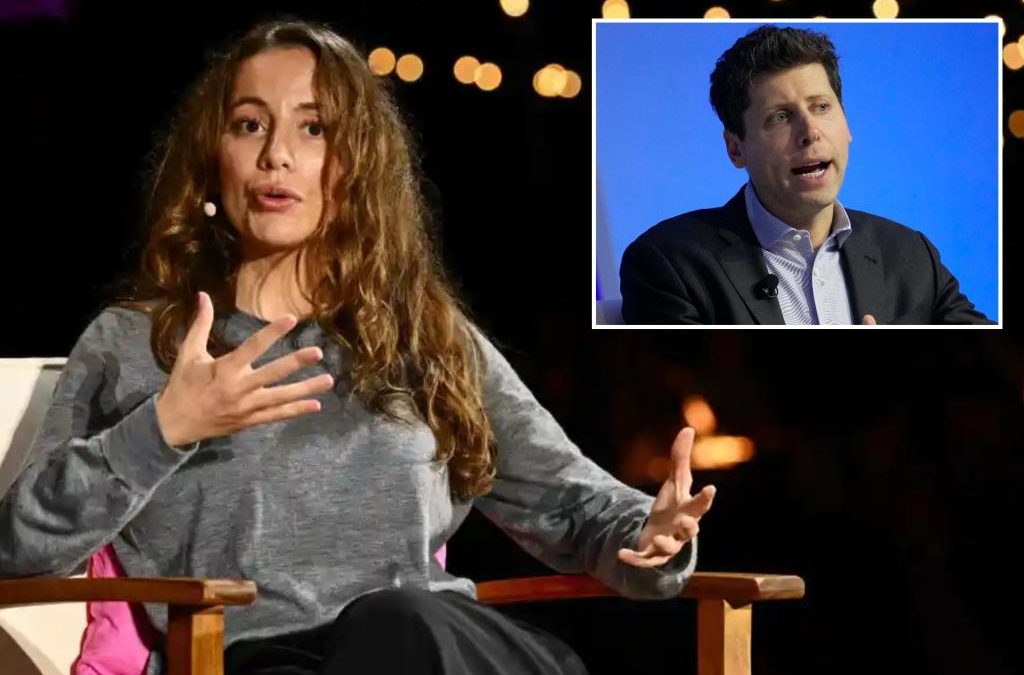OpenAI’s chief technology officer wrote a memo critical of boss Sam Altman’s management style to the company’s board of directors — setting in motion a chain of events that led to his ouster, according to a report.
Mira Murati expressed her concerns to Altman directly before sharing her misgivings about his leadership style with the company board, according to The New York Times.
Murati told board members that Altman manipulated executives to get what he wanted.
Altman would tell people what they wanted to hear to charm them so that they would go along with his decisions, Murati is reported to have told OpenAI board members.
But if those executives didn’t get on board with his plans or took too long to decide, Altman would then seek to undermine their credibility, Murati told the board.
Murati’s doubts about Altman were seconded by OpenAI co-founder and chief scientist Ilya Sutskever, who faulted the CEO for what he felt was manipulative behavior, the Times reported.
Both Murati and Sutskever told the board about their turbulent relationship with Altman, who was fired in late November — only to be brought back days later after he won a power struggle that saw the board replaced.
The board was concerned that if they didn’t take action against Altman, both Murati and Sutskever would leave the company and take loyalists with them — leading to an exodus of key employees, according to the Times.
The two executives expressed support for Altman’s reinstatement as CEO despite their contention that he created toxic work environments at the company and that he brooked no dissent from subordinates.
WilmerHale, the powerhouse Manhattan law firm, is conducting an independent inquiry into OpenAI’s handling of the Altman firing.
Alex Weingarten, an attorney representing Sutskever, told the Times that any suggestion his client approached the board to complain about Altman was “categorically false.”
After the Times published its story on Thursday, Murati told OpenAI employees that she and Altman “have a strong and productive partnership and I have not been shy about sharing feedback with him directly.”
Murati told staffers that “when individual board members reached out directly to me for feedback about Sam, I provided it – all feedback Sam already knew.”
She said that her communications with the board regarding Altman did not mean she was “responsible for or supported the old board’s actions.”
Altman’s firing in November triggered a crisis in the company, whose wildly popular ChatGPT bot raised its value considerably. Today OpenAI is said to be worth more than $80 billion.
The firm’s more than 700 employees threatened to quit en masse to protest the firing. Microsoft, a key investor in OpenAI, hired Altman and company co-founder Greg Brockman.
The Windows maker also invited any of the OpenAI employees to join the company.
Sutskever was one of six people who made up the board of directors at the time of Altman’s firing.
When Altman was reinstated, the board was replaced by an interim body of three directors: former Salesforce co-CEO Bret Taylor, who chaired Twitter’s board before Elon Musk took over the platform last year; former US Treasury Secretary Larry Summers; and Quora CEO Adam D’Angelo.
D’Angelo is the only member of the previous board to stay on.
The Post has sought comment from OpenAI, Murati, Sutskever and Altman.
Source




